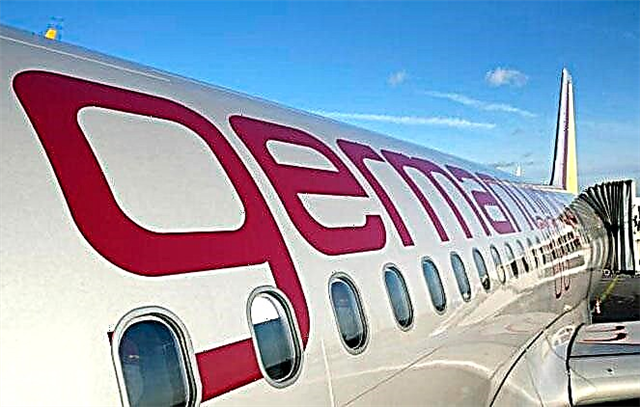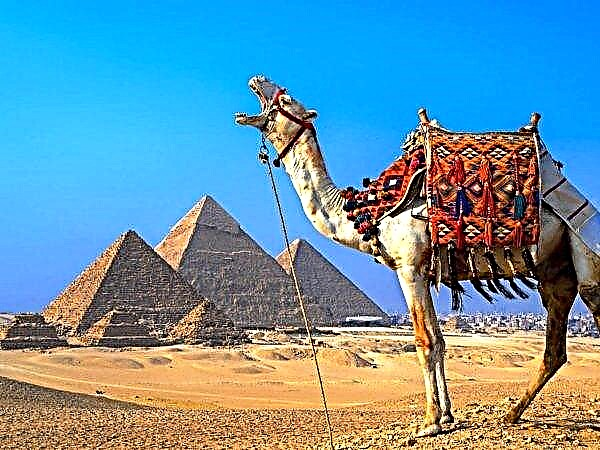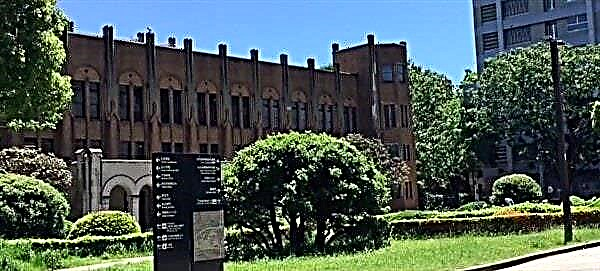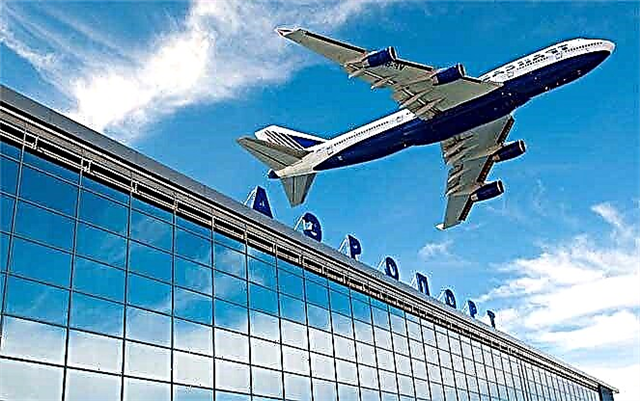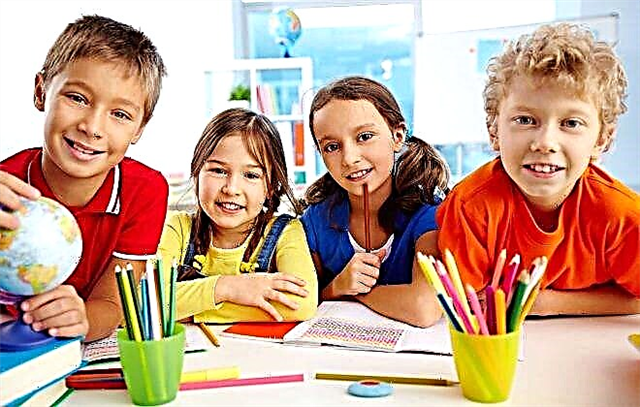Immigration to Israel with the whole family together with minor children imposes a great responsibility on parents. Moving to a foreign country, where they speak a different language and everything around is not yet familiar, is a great stress for a child. It is important for the future of children how easy it is for them to adapt to the new conditions, what they can count on and what kind of education they can get. The school in Israel plays an important socializing role. Therefore, the first task for immigrants with children is to get acquainted with the country's education system and choose the right school for them.

School education in Israel
School education in Israel is a topic of constant controversy within the country. He is criticized for his too soft approach to students, many believe that the study load should be increased ... For repatriates who graduated from school in the USSR, the education system in Israel causes the familiar feeling of bewilderment for Russians: why is a child without cramming and home lessons playing , begins to speak a new language for himself, solves examples, is not afraid of teachers and bad grades.
Interesting fact. Israel annually allocates 10% of the country's GDP for education, which is several times higher than similar spending in the Russian Federation.
Secondary education in Israel is regulated by a number of laws: "On Compulsory Education" 1949 with subsequent amendments (guarantees free education for persons from 3 to 17 years old), "On Public Education" 1953, "On Special Education" 1988, "On the rights of the pupil" 2000
The structure of school education reflects the heterogeneity of the country's population. Includes three steps.
The first stage - primary education - “hinuh yesodi”. Six-year-olds are accepted - 6 years old must be before the deadline in December (the Ministry of Education sets the exact date annually according to the Jewish calendar).
Speaking about how many classes there are in an Israeli school, it should be noted that Israel is characterized by the numbering of classes by Hebrew letters. There are two primary school options:
1-6 grades or “Aleph-Vav” - from 6 to 11 years old;
Grades 1-8 or “aleph-het” - from 6 to 13 years old.
Children are not heavily loaded with school subjects and homework assignments. There is a process of socialization, mastering the basics of mathematics, writing, reading, languages, music, painting, natural science, physical education.
Second stage - secondary and senior education - "hinuh al-yesodi":
secondary school - “hativat beynaim” - grades 7-9, or “zain-tet” - from 12 to 14 years old;
high school - "hativa eljona" - grades 10-12, or "yod-yod-bet" - from 15 to 17 years old.
In secondary school, children expect a deeper assimilation of the material, division into groups according to academic performance, the choice of future specialization in high school - physics and mathematics, humanitarian direction, biology and others. There are schools with an extended school day - until 15.00.
In many cities (for example, in Afula), secondary and high schools are combined into one complex.
Senior classes (Tikhon) are of three types:
academic - aimed at active preparation for passing tests and obtaining a "bagrut" - a certificate of maturity, without which they will not be admitted to the university (approximately 50% of high school graduates do not receive "bagrut");
professional - students have the opportunity to acquire a working profession;
universal - combine features of academic and professional.
The third stage is specialized secondary and higher education (from the age of 18).
The school year in Israel begins on September 1 for everyone, ends on June 20 (for high school) and June 30 (for primary).
Schools in Israel: typology and features
Israeli law recognizes several types of school institutions in accordance with the degree of state control over their activities:
public schools (secular) - about 70% of all student children in the country study (the first secular school in Israel was PIKA in Petah Tikva). Control over their activities is carried out by the Ministry of Education of Israel: 75% of all subjects are taught according to the programs of the Ministry, and 25% - at the discretion of the schools themselves. The average number of students per class is up to 40;
state and religious. In religious-Zionist schools (25% of students), religious subjects are taught to a greater extent, the teaching staff in them are Jews;
Orthodox schools - about 4% of children. Religious subjects prevail here.
In public schools, tuition is free, while private schools in Israel are paid. Parents should provide their child with textbooks, stationery and clothing.
Every year, the Ministry of Education calculates the size of a one-time monetary contribution of parents to the "cultural basket" - to pay for excursions, exhibitions and other events attended by schoolchildren (900-1100 shekels). New immigrants and low-income people get a 98% discount.
In Israel, there are also state special schools (arts, technology, science, and others) with a share of the parents in paying for tuition. In such schools, the curriculum is broader than the ministerial one.

There are also foreign and private schools in the country (for example, the Leo Beck School in Haifa), which are recognized by the Ministry of Education, follow mainly ministerial programs, but a number of subjects are taught in an expanded scope, often using their own teaching methods.
In many of these schools, teaching is in English. Education in them, as a rule, is paid. So, for example, in the Even Yehuda school near Netanya, the curriculum in which is based on the American one, the highest tuition fees in the country: 95-103 thousand shekels per year. But the diploma after graduation will allow you to enter universities in the United States and Europe.
Unique educational methods are actively used in Israel - the Montessori system, Waldorf methods, gene flow, TALI formation.
In 1991, in connection with the increase in immigrants from the former USSR, the American training center "Shuvu" was created in Israel, under the patronage of which 15 primary and 10 high schools with a religious bias operate today. US funding, free meals for children, attracts children from low-income families.
The Government of Israel, together with a Jewish agency, developed a program "NAALE 16" - "Children immigrate before their parents", which provided an opportunity for foreign students eligible for repatriation to complete secondary education and obtain a certificate in Israel at schools "Adassim", "Yoanna", " Kfar ”“ Galim ”and others.). More information can be found on the schools' websites (for example, “Mevoot Iron” - mevoot-eron.elvistudio.com).
In addition to secondary education, enrollment in Technion classes will allow you to receive an engineer degree of the 1st degree after school (for example, in Nahalali) and enter a technical university.
Interesting fact. In Israel, schools are not numbered. Each has its own name - by the name of a famous figure or by the name of the street. Pupils of the school must wear plain T-shirts with the emblem (semel) of the school - this is a school uniform in Israel. The emblems can be affixed for free in the store when buying clothes or for 7 shekels they can be printed on the T-shirt brought.
Schedule of lessons and school holidays in Israel
Israeli schools operate on a five- and six-day week starting on Sunday. Friday is a short day (4 lessons). In many schools, lessons are paired - up to 90 minutes. In elementary school, 31 lessons are held per week (for first graders - 30).
Children learn the basics of mathematics, Hebrew, Tanakh, natural history, English, history, music, etc. Classes in ordinary schools - from 8.00 to 13.00, in religious schools - until 14.00.
Each school has an official website where all news, homework and lesson schedules are posted.
In high school, new subjects are added: chemistry, physics, biology. Pupils, in addition to compulsory subjects, can attend additional ones - theater skills, economics and others.
Some academic subjects in middle and high schools (mathematics, foreign language) are taught by level: easy, difficult and very difficult.
Holidays in Israel for schoolchildren are tied to Jewish holidays and therefore are mobile:
- 18 days during Passover (April-May);
- 7 days Sukkot (September-October);
- 7 days of Hanukkah (December);
- four times a year rest for 3 days - on Rosh Hashanah (September-October), Yom Kippur (September-October), Purim (March) and Shavuot (June);
- twice in May - 1 day each (Independence Day and Lag BaOmer) - as of 2018-2019
In addition, Israeli schoolchildren have two months of rest in the summer - July and August. In foreign or international schools operating in Israel, the terms of vacations coincide with those adopted in Europe and the United States.
How to get a child to school in Israel
For enrollment of a child in school, you should contact the education department of the local municipality and provide documents there: identity cards of parents, identity cards of repatriates, birth certificate of a child, papers from the place of previous study.
You should also look at all social media reviews of schools in the area. Returnees can enroll children as young as 6 years old in the Aleph class. If a child is 7 years old, but he has not received compulsory education before school - "gan-hova", at the request of the parents, he can also be enrolled in the first grade.
According to Israeli law, primary and secondary schools must be within walking distance for students, so children are sent to study at their place of residence.
You can choose a high school at will, including in other cities (there can be up to 15 parallel classes). For enrollment, children must undergo a psychotest; for new immigrants, it is conducted in Russian.
Best schools in Israel for immigrants
Children who graduate from prestigious schools are much more likely to succeed than those who have lived and studied in disadvantaged areas. The more elite the area of residence, the more likely it is that schools on its territory will be in the upper echelons of the rating.
The rating of Israeli schools takes into account the achievements of schoolchildren, the degree of their comfort at school and other parameters. Leading positions are taken by schools from Herzliya, Ra'anana, Ramat Hasharon, Savyona, Chulon, Tel Aviv. Among the outsiders are educational institutions from Akko, Beer Sheva, Yeruham.
You can learn more about the school in any locality in Israel on the map prepared by the Ministry of Education (z.ynet.co.il/short/content/2017/madlan/). So, for example, according to the ministry, the best schools in Rishon LeZion are:
- “Adini” (Nave-Adarim region);
- “Merhavim” (western Rishon);
- the combined high-high school in Maarav ha-watik;
- Gan-Khanum gymnasium;
- “Katsenelson” (Holon);
- “Nir-a-Emek” is a boarding school in the youth village VITSO (Jezreel Valley).
For repatriates living in the southern regions of the country, an interesting option would be the interregional school "Maale Shaharut" (40 km from Eilat), which serves residents of 11 kibbutzim.
For children keen on theater, the Yitzhak Rabin School of Arts and Sciences in Nahariya can be recommended, with additional Hebrew lessons for returnees.
The most popular and well-known high schools often have “pnimi” - boarding schools in which schoolchildren from remote regions of the country can live and study. So, in Jerusalem, this is Boyer High School.
Russian schools for repatriates from the Russian Federation
Immigrants from Russia are often interested in whether there are Russian schools in Israel: parents want their children not to forget the Russian language and literature, not to lose ties with their former homeland.
The most famous is the school at the Russian Embassy in Israel. It is difficult to get to study here, since the number of places is limited. Teaching is conducted according to Russian programs, children take the Unified State Exam, receive a Russian certificate.
In many cities, for example, in the "Russian" capital Ashdod and others, there is a whole network of evening schools, where everyone from 4 years old is accepted. They conduct classes not only in the Russian language and literature, but also in other subjects. Among the famous are "Rakefet" in Ramat Gan, an Orthodox school for girls in Bethany, "Erudite" in Herzliya, the list goes on. Knowledge of the Russian language is useful in life, but if you want to stay in Israel and build a new life in it, the best option for children would be education in Israeli schools.
Let's summarize
Many immigrants who came from the Russian Federation to Israel with children are faced with the problem of which school to choose for them. The local school system is very different from the Russian one: different requirements, different approaches. Regardless of the place of residence - in the north in Tel Hai or in the south in Eilat - Israeli law ensures the right to free education in secondary schools.
If, when choosing a school, you try to compare with what is familiar to a Russian, nothing good will come of it. You just have to accept that everything is not worse and not better here, but simply different. When choosing a place of residence, one should take into account the presence of a good school in the area. For those who cannot adapt, there is always a fallback - a school at the Russian Embassy in Israel or another Russian school.



